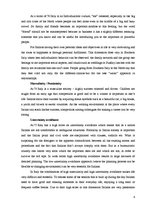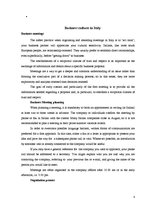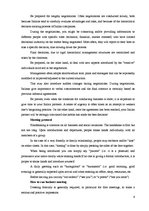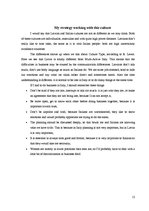-
Business Culture in Italy
2011. - 2020. g.
| Nr. | Sadaļas nosaukums | Lpp. |
| 1. | Introduction | 3 |
| 1.1. | Cultural dimensions according to Geert Hofstede | 3 |
| 1.2. | Cultural type: The Lewis model | 5 |
| 1.3. | Italy according to Edward Hall | 6 |
| 2. | Business culture in Italy | 7 |
| 3. | My strategy working with this culture | 11 |
| 4. | Bibliography | 12 |
3. My strategy working with this culture
I would say that Latvian and Italian cultures are not as different as we may think. Both of these cultures are individualist, masculine and with quite high power distance. Latvians don’t really like to take risks, the same as it is with Italian people- both are high uncertainity avoidance countries.
The differences shows up when we talk about Culture Type, according to R. Lewis. Here we see that Latvia is totally different from Multi-Active Italy. This means that the difficulties in business may be coused by the communication differences. Latvians don’t talk much, don’t use body language as much as Italians do. We are more job-oriented, tend to hide our emotions and say what we think rather direct and sometimes harsh. Also the time understanding is different- it is normal to be late in Italy or to do many things at the same time.
If I had to do business in Italy, I should remember these things:
• Don’t be mad if they are late, interrupt or talk too much- it is just who they are, or make an agreement that they are not being late, because I can not accept it;
• Be more open, get to know each other before doing business together, because it is important to earn trust;
• Don’t be unpolite and cold, because Italians are warmhearted, they like to show emotions and would probably appreciate me trying to do the same.
…
Darbs par biznesa kultūru Itālijā, Latvijas un Itālijas kultūru salīdzinājums













